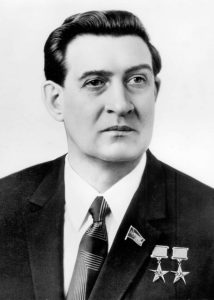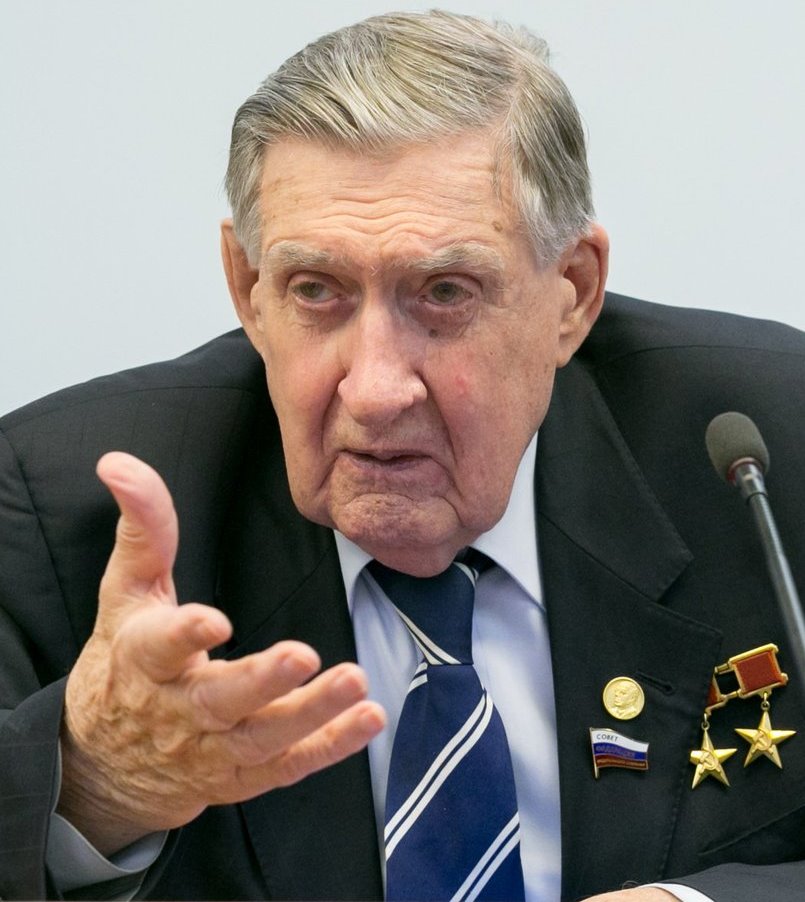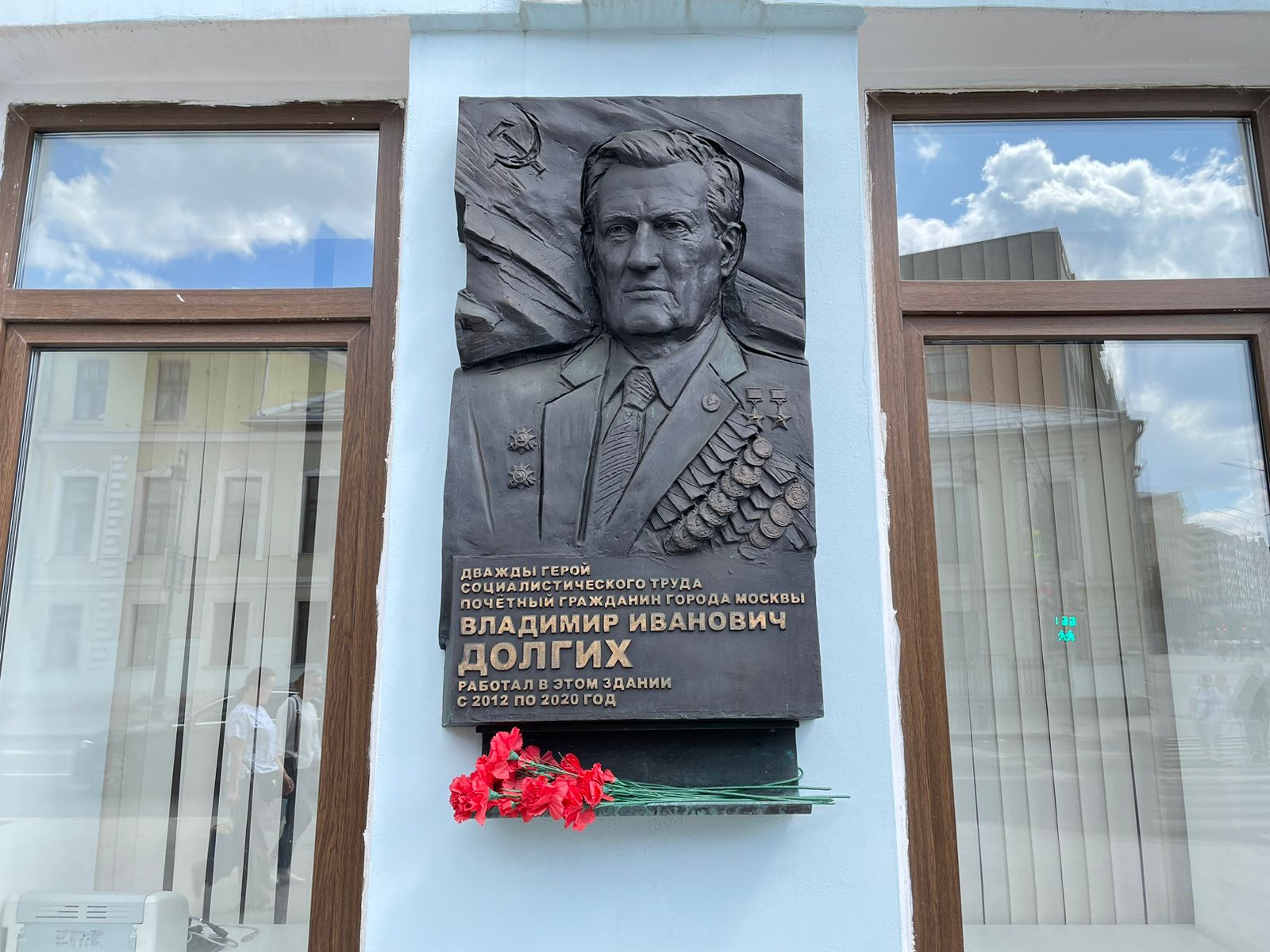Vladimir Ivanovich
Dolgikh
1924-2020

Vladimir Ivanovich Dolgikh was an outstanding Soviet and Russian statesman, metallurgical engineer, twice Hero of Socialist Labour, Doctor of Technical Sciences, honorary citizen of Moscow. He was born into a large peasant family in the village of Ilanskoye in the Yenisei governorate. V.I. Dolgikh grew up in the conditions of collectivisation and the first five-year period. In 1941, when V.I. Dolgikh was only seventeen years old, he volunteered for the Red Army and found himself on the front line. He took part in the battle for Moscow. In 1943, Dolgikh was seriously wounded in one of the battles and had to leave the service for health reasons. Demobilisation was a turning point for him: he decided to devote himself to engineering, to help rebuild the country. After the war, Dolgikh entered Irkutsk Mining and Metallurgical Institute, which he graduated from with honours as a metallurgical engineer. In the 1950s he began his career at the Krasnoyarsk refinery. A few years later, he moved to the Norilsk Mining and Metallurgical Combine, where he rose from a shop foreman to a chief engineer and then a director. Under his leadership, Norilsk underwent a major transformation, with the construction of many industrial and infrastructural facilities that played an important role in the development of the North and the provision of resources for the whole country. Thanks to his efforts, the Mayak mine, a bridge over the Norilka River, a new airport, and a port at Dudinka were built in Norilsk, greatly facilitating the transport of raw materials and goods to the northern regions. One of Dolgikh’s most important contributions to the development of northern industry was to organise a large-scale and systematic increase in the mining and processing of non-ferrous metals. Under his leadership, the Norilsk Combine became one of the world leaders in non-ferrous metallurgy. For his achievements as head of the Norilsk Combine, Dolgikh was awarded the title of the Hero of Socialist Labour. In 1969 he became First Secretary of the Krasnoyarsk Regional Committee of the CPSU, where he initiated programmes for the comprehensive economic development of the Krasnoyarsk region. Under his leadership, the coal, power, chemical and timber industries developed, making the region one of the most important economic centres in the Soviet Union. In 1972, Dolgikh was appointed as Secretary of the CPSU Central Committee for Heavy Industry and Fuel and Energy. In this position he oversaw the strategic sectors of the Soviet economy: metallurgy, energy, fuel and heavy industry, and agriculture. One of his key tasks was to ensure the stability of industrial growth, increase capacity and improve the efficiency of mineral extraction and processing. Dolgikh paid particular attention to technological innovation and the introduction of new production methods. He was involved in the modernisation of large enterprises, seeking to increase labour productivity and introduce advanced technologies. With his support, Soviet industry began the mass introduction of automated control systems, which reduced labour costs and improved product quality. His activities significantly strengthened the Soviet Union’s industrial potential in the face of growing international competition. In addition to his active work in the industrial sphere, Vladimir Dolgikh was known for his attention to the problems of people, especially those working in harsh conditions. He organised social support programmes for workers and was involved in developing the social infrastructure of industrial enterprises. Under his leadership, housing, hospitals, kindergartens, schools and other facilities for workers were built, making many companies more attractive to young people and skilled workers. After the collapse of the Soviet Union, Dolgikh remained true to his principles and continued to be active in public life. He was one of the few managers to adapt to the new conditions, supporting initiatives in the field of industry and social development. His merits were recognised by numerous state awards, including the Order of Lenin, the Order of the October Revolution, the Order of the Patriotic War of the First Degree and others. In the last years of his life he continued to influence public processes and share his experience, especially in the management of industrial complexes and the development of the northern territories. In memory of V.I. Dolgikh, a memorial plaque has been placed on the building where he worked from 2012 to 2020.
Address: Moscow, Malaya Dmitrovka str., 2, building 1

